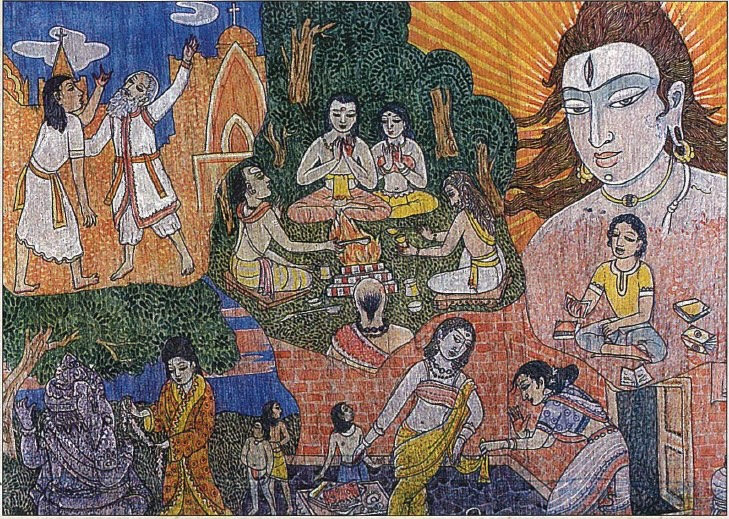Conversion is nothing new for Hinduism. The advent of Jainism and Buddhism in India in 600 bce resulted in the conversion of millions of Hindus. Centuries later, revivals resulted in the reconversion of millions of Jains and Buddhists. In modern times, conversion to or from Hinduism remains a major issue, often resulting in extreme disharmony within families and towns. We have Hindus switching as a result of enticement or deception. We have Indians who converted wanting to return to Hinduism. And we have non-Hindus from lands outside Bharat requesting formal entrance into our faith, including those who have married a Hindu.
Gurudeva addressed each of these issues, ultimately formalizing his experience and suggestions for “ethical conversion” in the book, How to Become a Hindu. As with his approach to most topics, he started with a mystical insight. In ancient times, people tended to reincarnate right within the same village and religion time and again. “Now,” he said, “with modern-day travel and worldwide communication, this tightly knit pattern of reincarnation is dispersed, and souls find new bodies in different countries, families and religions which, in some cases, are foreign to them.”
For such a person, the “Eastern soul in a Western body,” he proposed a thoughtful and peaceful method of self-conversion. He required his own devotees wanting to convert from a previous faith to study that faith and explain convincingly, point by point, why they no longer believed it. He sent them back to their churches, synagogues, etc., encouraged them to attend services for a while and speak with their ministers. Every chance was given for them to change their mind, or to have someone change it for them. If they passed this test, they were required to demonstrate their knowledge of Hinduism through a series of exams, legalize their new Hindu name, then enter the faith formally through the name-giving rite, namakarana samskara, in a temple ceremony. There were also many among his devotees who had no previous faith, even though they grew up in the West. In their case, they adopted Hinduism as their first religion through the study of it and the name-giving ceremony, without the need to “convert.” Gurudeva strongly enjoined Hindus to welcome sincere converts and adoptives into their midst and not shun or ignore them, as is often done.
He recommended the same conversion procedure for Indians who had converted to other faiths, especially when theyÑor their forefathersÑconverted because of pressure or practical expediency. “Born Hindus,” he observed, “have accepted new religions in order to have food on the table, to gain access to schools for their children or to a hospital for health care, to qualify for employment or a promotion, to protect their lands from confiscation or their families from harm. This is not just a matter of history. It continues today.” Often after a few years, such people want to return to Hinduism, but the Hindu community will not accept them back. Gurudeva revived the ancient ceremony of vratyastoma to formally sanctify their reacceptance into the community.
Gurudeva did not condone the activities of Christian missionaries in India. Often he requested his Hinduism Today staff to look into one or another unethical practice reported to him. He raised the conversion issue directly with missionary organizations, with governments and at international conferences. He held the organizations accountable for deception and enticement. “Doctors and lawyers have ethical guidelines concerning their patients and clients,” he wrote. “This is not always true among religionists. They can and often do disdain one another. Ethics must be established among all the religionists of the world. They must nurture an appreciation for each other, not merely a tolerance. Religious leaders, above all, must remain fair, despite their enthusiasm.”
To stem the tide of conversion, he said, education of Hindus in Hinduism must be a priority. “You cannot convert a Hindu who knows his religion.” His book How to Become a Hindu has found a ready audience in India. Reviewers suggested it should be called How to Become a Better Hindu.Gurudeva’s campaign for systematic conversion has opened the door to Hinduism for thousands of seekers and changed the way born Hindus regard newcomers and those returning to the faith.


